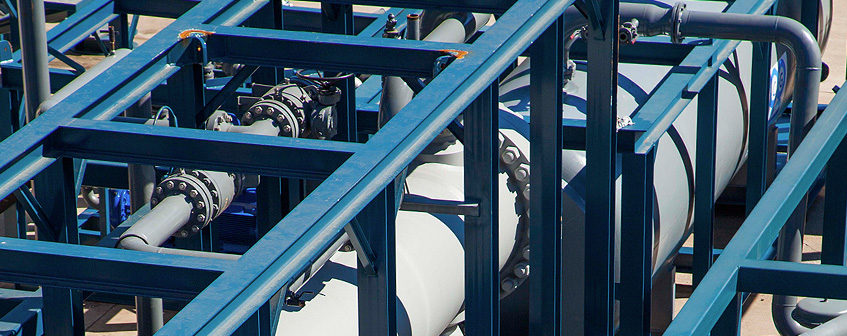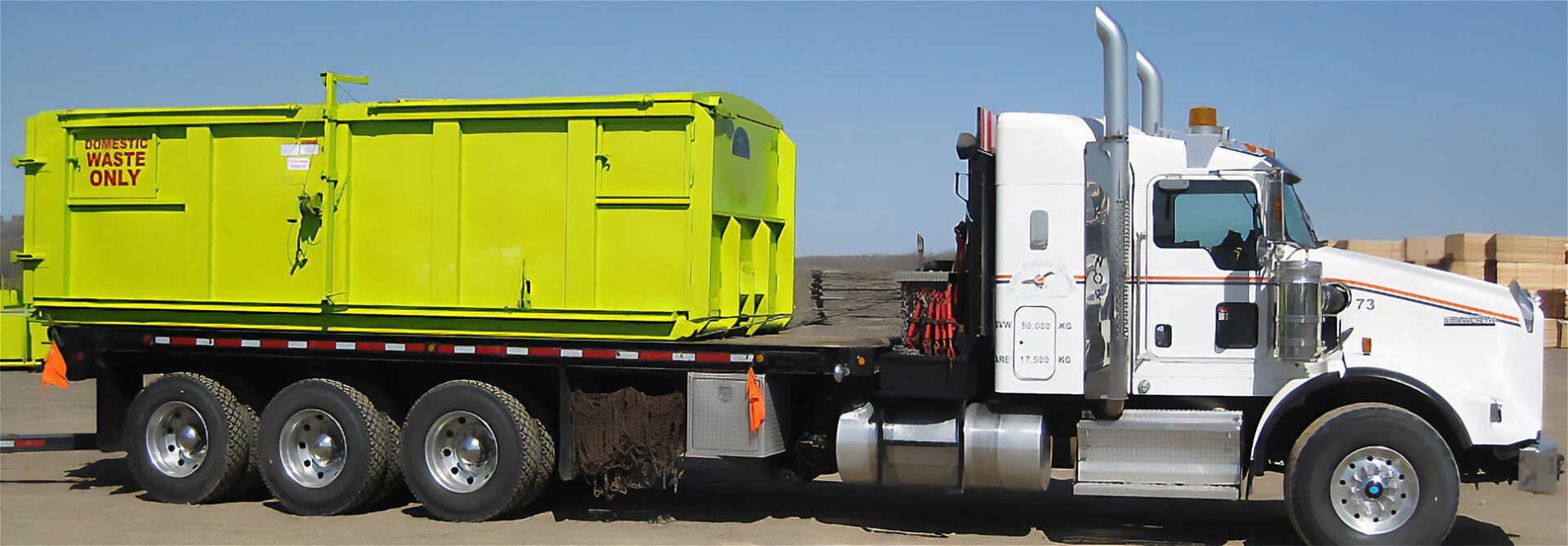Superior Oilfield pipeline equipment rentals vs owning machines: financial comparison
Wiki Article
A Comprehensive Overview to the Various Kinds Of Oil Field Equipment and Pipeline Equipment Available
The oil and gas sector relies greatly on customized devices for reliable removal and transportation. Various kinds of machinery, from drilling rigs to tank, play crucial duties in this intricate procedure. Each piece of equipment offers distinct functions that add to total functional success. Recognizing these components is crucial for any person associated with the industry. As the sector progresses, so too do the modern technologies that support it. What developments are on the perspective?
Drilling Rigs: The Backbone of Oil Exploration
Drilling rigs work as the vital equipment in the domain name of oil exploration, enabling firms to access hydrocarbon gets buried deep underneath the Planet's surface. These rigs can be found in numerous kinds, consisting of land rigs, offshore rigs, and mobile devices, each designed to run in details environments. Geared up with sophisticated innovation, drilling rigs can pass through geological formations with accuracy, making sure reliable resource extraction. The architectural stability and operational abilities of these rigs are essential, as they should withstand severe conditions and considerable pressures. Moreover, the option of a drilling gear influences the overall job price and timeline, making it a vital factor to consider for oil companies seeking to optimize their exploration efforts and maximize performance in their procedures.Pumps: Essential for Liquid Activity
In the oil extraction procedure, the role of pumps is substantial, helping with the movement of fluids throughout numerous stages of production. Pumps are vital for transporting unrefined oil, water, and other fluids from below ground tanks to the surface and after that through pipes to refineries. They can be found in different types, consisting of centrifugal, positive displacement, and submersible pumps, each serving specific purposes based upon the liquid qualities and functional requirements. Centrifugal pumps are generally made use of for their efficiency in high-flow applications, while positive variation pumps succeed in taking care of viscous fluids. The option of pump effects general effectiveness, operational safety, and maintenance prices. Proper choice and maintenance of pumps are crucial for enhancing production and minimizing downtime in oil area procedures.Valves: Controlling Flow and Pressure

Valves play an essential duty in taking care of the flow and pressure of fluids within oil areas and pipes. Different kinds of shutoffs offer distinctive applications, each made to meet certain features fundamental for effective procedure - Superior Rentals near me. Recognizing the features and usages of these shutoffs is crucial for maximizing system efficiency and safety and security
Types of Valves
Necessary elements in oil area operations, valves play a vital role in controlling the circulation and stress of liquids within pipes and devices. Different sorts of valves are made use of to fulfill the varied requirements of oil and gas manufacturing. Typical kinds consist of gateway shutoffs, which provide a straight-line flow and marginal pressure drop; world valves, recognized for their strangling capabilities; and sphere valves, recognized for their quick on/off control. In addition, check shutoffs prevent heartburn, while butterfly shutoffs offer a light-weight option for managing circulation. Each valve type is made with certain products and configurations to hold up against the rough problems typically found in oil areas, ensuring integrity and performance in procedures. Recognizing these kinds is essential for effective system monitoring.Valve Applications and Features
While different kinds of valves offer distinct functions, their key applications focus on regulating flow and stress within oil and gas systems. Valves such as gate, globe, and round shutoffs regulate fluid motion, making certain peak efficiency and safety and security. Gate shutoffs are frequently utilized for on/off control, supplying marginal circulation resistance. Globe valves, on the other hand, offer precise flow policy, making them suitable for strangling applications. Ball valves are favored for their quick operation and tight securing abilities. In addition, stress safety valve are vital for preventing system overpressure, protecting tools stability. In general, the ideal option and application of shutoffs enhance functional effectiveness, making sure the reliable transportation of oil and gas with pipes and processing facilities.Compressors: Enhancing Gas Transport
Compressors play an essential function in the effective transport of all-natural gas, ensuring that it relocates smoothly through pipes over long distances. These tools enhance the pressure of gas, allowing it to overcome rubbing and elevation adjustments within the pipeline system. In addition, compressors assist in the harmonizing of supply and need, fitting variations in intake and production rates. Different sorts of compressors are employed in the sector, consisting of centrifugal, reciprocating, and rotating screw compressors, each offering distinctive advantages based on the operational needs. Routine maintenance of these compressors is necessary to make best use of efficiency and minimize downtime, inevitably adding to a dependable gas transportation network. Their essential feature highlights the relevance of compressors in the general oil and gas framework.Storage Tanks: Safe and Effective Liquid Monitoring
Effective transportation of gas depends on different supporting systems, among which is the proper monitoring of tank. These storage tanks play a necessary role in safely including liquids, making sure that operational efficiency is maintained while minimizing environmental risks. Constructed from long lasting products, they are designed to hold up against high stress and corrosive aspects. Properly sized and tactically situated, storage space containers promote the smooth circulation of natural gas and various other liquids, preventing traffic jams in supply chains. Routine maintenance and tracking are important to detect leakages or structural issues, advertising safety and security and conformity with regulative standards. Ultimately, the efficient monitoring of tank is vital for the overall honesty and dependability of the oil and gas industry's liquid handling systems.
Pipeline Solutions: Facilities for Transport
Pipeline systems work as the backbone of the oil and gas market, promoting the reliable transportation of hydrocarbons over vast ranges. These systems contain different components, consisting of pipes, shutoffs, pumps, and compressors, all diligently made to ensure seamless flow. The products made use of in pipeline building, commonly steel or high-density polyethylene, are chosen for durability and resistance to corrosion. Pipeline networks can span across land and water, attaching production websites to refineries and circulation facilities. Additionally, advanced modern technology makes it possible for real-time tracking of flow prices and pressure degrees, improving functional effectiveness. The strategic outside pipe leaking positioning of these pipes minimizes environmental impact while making the most of resource access, therefore playing an important duty in meeting energy needs around the world.Safety And Security Equipment: Making Certain Worker and Environmental Protection
The procedure of pipeline systems, find out while crucial for energy transport, likewise offers considerable safety and security difficulties for employees and the setting. Safety and security equipment plays a significant function in mitigating these risks. Personal safety equipment (PPE) such as helmets, gloves, and non-slip footwear safeguards workers from physical risks. In addition, gas discovery systems keep an eye on for leakages, making certain that harmful substances do not position a risk to workers or the surrounding environment. Emergency shutdown systems are important for quickly stopping operations throughout a crisis, preventing potential catastrophes. Spill containment products, including absorbents and obstacles, are basic for decreasing ecological influence. In general, purchasing comprehensive security equipment is vital for preserving operational stability and protecting both employees and the environment in the oil and gas field.
Frequently Asked Concerns
Exactly how Do I Pick the Right Oil Field Equipment for My Job?
Selecting the right oil area equipment entails assessing job requirements, budget plan restraints, and operational needs. Think about elements such as devices reliability, compatibility with existing systems, and the distributor's track record to guarantee peak performance and security.What Are the Upkeep Requirements for Oil Field Equipment?
Upkeep demands for oil field equipment include regular assessments, lubrication, and timely repair work. Operators should also comply with supplier guidelines, display efficiency metrics, and guarantee compliance with security policies to improve longevity and effectiveness.
Exactly How Can I Guarantee Conformity With Environmental Laws?
To ensure compliance with ecological guidelines, firms should carry out routine audits, carry out finest methods, purchase training, preserve correct paperwork, and stay updated on regulation (Superior Rentals Contact). Collaboration with environmental agencies can also enhance adherence to policiesWhat Is the Ordinary Life Expectancy of Pipeline Equipment?
The ordinary lifespan of pipeline equipment usually varies from 20 to half a century, relying on factors such as material high quality, environmental problems, and maintenance practices. Routine examinations can considerably affect durability and functional effectiveness.Just how Do I Safely Transport Oil Field Equipment to Remote Locations?
Delivering oil area tools to remote locations needs careful planning, including path analysis, protecting authorizations, making use of appropriate cars, and Bonuses making certain security procedures are complied with. Correct training and communication among crews are important for effective transport.Report this wiki page